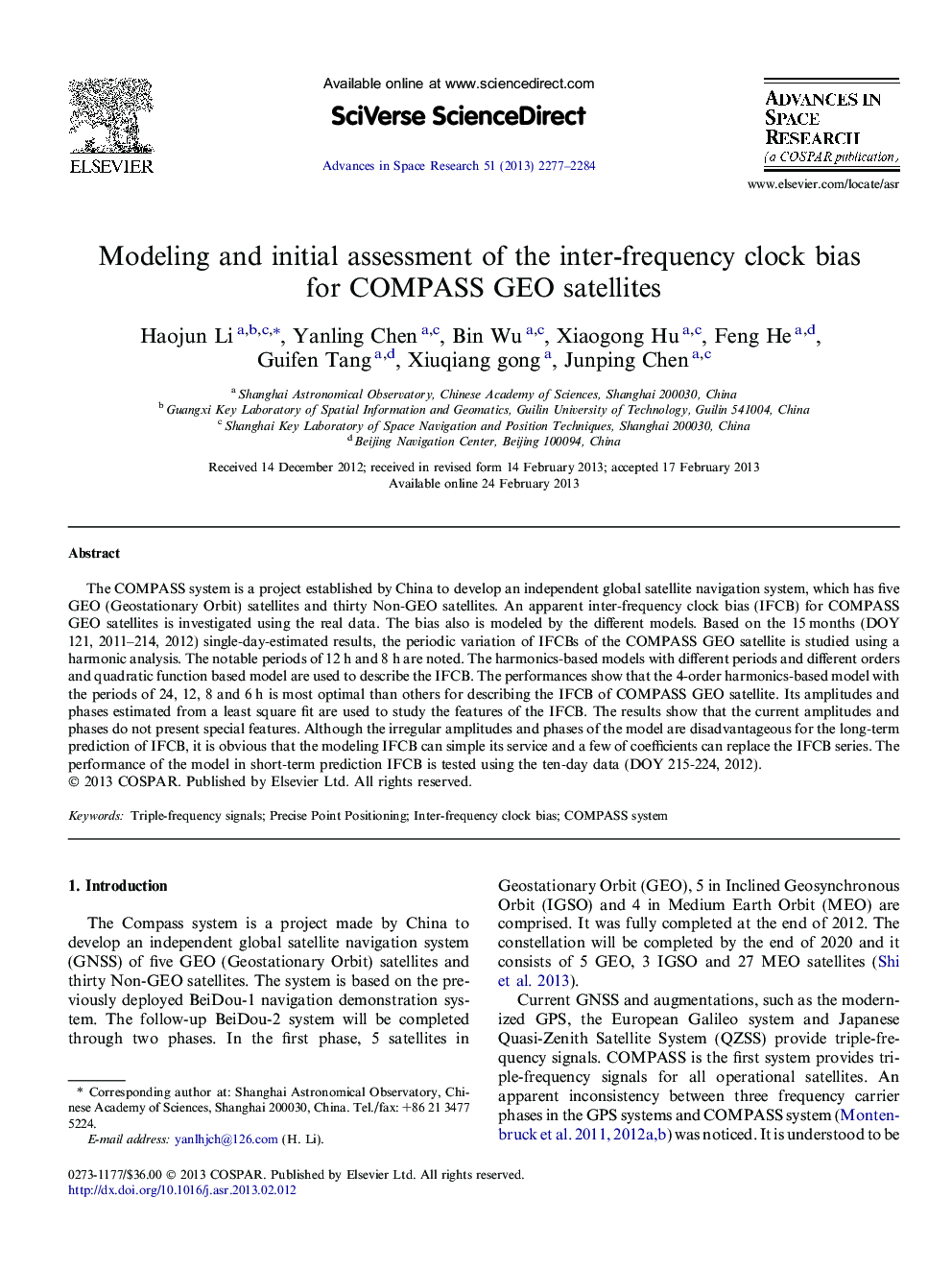| Article ID | Journal | Published Year | Pages | File Type |
|---|---|---|---|---|
| 1764359 | Advances in Space Research | 2013 | 8 Pages |
The COMPASS system is a project established by China to develop an independent global satellite navigation system, which has five GEO (Geostationary Orbit) satellites and thirty Non-GEO satellites. An apparent inter-frequency clock bias (IFCB) for COMPASS GEO satellites is investigated using the real data. The bias also is modeled by the different models. Based on the 15 months (DOY 121, 2011–214, 2012) single-day-estimated results, the periodic variation of IFCBs of the COMPASS GEO satellite is studied using a harmonic analysis. The notable periods of 12 h and 8 h are noted. The harmonics-based models with different periods and different orders and quadratic function based model are used to describe the IFCB. The performances show that the 4-order harmonics-based model with the periods of 24, 12, 8 and 6 h is most optimal than others for describing the IFCB of COMPASS GEO satellite. Its amplitudes and phases estimated from a least square fit are used to study the features of the IFCB. The results show that the current amplitudes and phases do not present special features. Although the irregular amplitudes and phases of the model are disadvantageous for the long-term prediction of IFCB, it is obvious that the modeling IFCB can simple its service and a few of coefficients can replace the IFCB series. The performance of the model in short-term prediction IFCB is tested using the ten-day data (DOY 215-224, 2012).
• The inter-frequency clock bias of COMPASS GEO satellite has the periodic variation characterization. • The 4-order harmonics-based model with the periods of 24, 12, 8 and 6 h can describe the IFCB of COMPASS GEO satellite well. • More than 74.7% IFCB can be corrected using the presented model.
